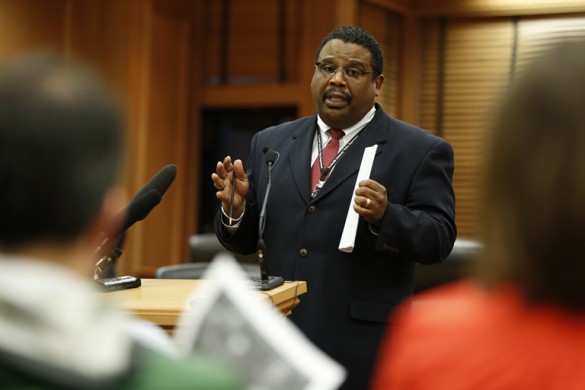
State legislators are holding off taking action on a bill that threatens the standing of Vanderbilt University Police Department to protect the Vanderbilt campus.
The bill would take away the right of Vanderbilt’s police department to make arrests and enforce criminal laws if the university continues to maintain its nondiscrimination policy.
“We are pleased that the legislation will not move forward and that the Vanderbilt University Police Department can focus on protecting the large population of people who live and work on and near the Vanderbilt campus,” said Beth Fortune, vice chancellor for public affairs.
“We want to further reinforce our commitment to ensuring that student religious life is alive and well on the Vanderbilt campus, and our dedication to ensuring the ability of all to enjoy that privilege continues.”
More than 400 student organizations, including a majority of religious groups, comply with the university’s nondiscrimination policy, which states that any student can join any group and any member of that group in good standing can seek a leadership position, though members of the organization choose their leaders.
“Our religious group has continued to operate on campus, and there are many Christian and non-Christian groups on campus that continue to operate and thrive on campus,” student Rebekah Austin, a junior electrical engineering major and president of the Wesley/Canterbury Fellowship at Vanderbilt, told the House education subcommittee March 12 during testimony.
VUPD Police Chief August Washington and Dr. Corey Slovis, chairman of emergency medicine, also spoke against the bills this month on Capitol Hill, and Metro Police Chief Steve Anderson publicly stated his opposition to the legislation, saying VUPD is a valuable partner to Metro police in providing safety to the Vanderbilt campus and surrounding area.
Tennessee Attorney General Bob Cooper called the legislation “constitutionally suspect” in an opinion issued earlier this month.
The bills, SB1241 in the Senate and HB1150 in the House, are not scheduled to be brought up again this legislative session. They could, however, be revived when lawmakers meet again in January.